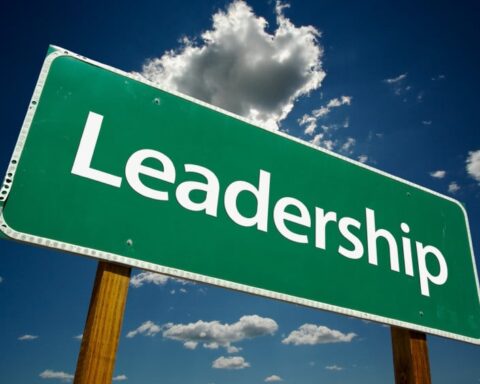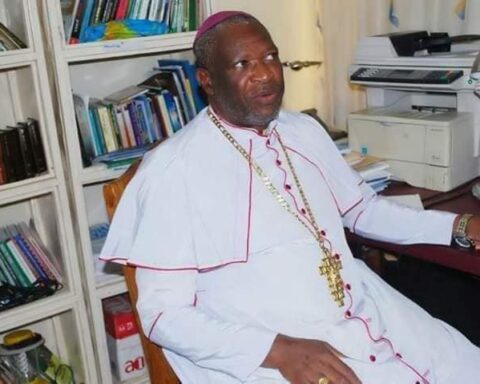Have you ever thought you knew a person until you gave him political power, perhaps the highest office in the land? That’s one of the lessons in power. No doubt, this must be one of the most harrowing, unforgettable dark moments in Bola Tinubu’s presidency. Ahead of last week’s nationwide protests tagged #Endbad governance, there was a whirl speculation of what was looming. The President was forewarned about the sound of thunder and fury coming. But being a man of overweening pride and hubris, and surrounded in his smoke-filled room by sycophants who tell him only what he wants to hear and not the reality of the challenges confronting the nation, he ignored the writing on the wall, and the voices of reason that hardship in the country has reached unprecedented levels.
A leader who is prescient and forward-looking would not ignore the spawning fear that civil unrest was imminent, and that his country is in a pressure cooker. Sadly, that’s how leaders who think they have a messianic calling run aground in the presidency. They have this trait of ‘too-big-to-fail’ mentality. They see themselves as the sun around which other planets must revolve. And now, see the rage, deaths, sorrow, tears, blood and destruction of public property across many states of the country last week. If President Bola Tinubu was a student of history, power and leadership, he would have had insights into the nature of power, the complexity of ambition, and indeed, the role that the greater good can play in the making of a leader. And, perhaps the protests that turned violent in some states, and killings of protesters by security operatives would not have happened.
As Spanish-American philosopher George Santayana cautioned several decades ago, “those who do not learn from history are doomed to repeat it.” You may ask, what does this really mean? Put simply, it means that those who cannot remember or ignore the past are condemned to repeat it. This column three weeks ago urged the President to make haste because the hunger protest was frighteningly approaching. I wrote, “if there was one battle any leader, any president cannot win, it’s the fight against time”. I stated, matter-of-fact, that for President Tinubu, time is running short to address the multiple problems facing the nation, especially hunger. The cost of living has gone beyond the purchasing power of ordinary citizens amid the obscene opulence of the political elites. Renowned lawyer, Olisa Agbakoba did also warn of imminent hunger riots across the country. I knew the President would not listen.
Those close to him say his thinking is that the protest fire will fizzle out after Day One. That ought not be the mindset of a forward-looking, transference leader who loves his country and means well for the citizens. Nigeria has lost its way and is in steep decline right now. But whatever is the final outcome of the protest, it must be counted as a success. It should serve as a wake-up call for this government. At least on Day one of the hunger protest, there was a clarity of purpose and the message was clear, that bad governance could no longer be tolerated. No fewer than 17 lives were reported lost in Borno, Kano, Katsina, Kaduna Nasarawa, Niger and Yobe states, forcing the Governors of Kano, Niger, Nasarawa and Yobe to impose 24-hour curfew. For instance, in Katsina state, the protesters thronged the residence of ex-President, Muhammadu Buhari in Daura and the palace of the Emir, Alhaji Umar Faruk Umar. The angry youths were held back by security operatives.
Buhari should count himself lucky not to have ventured out of his fortified mansion. According to the scriptures, they that sow the wind shall reap the whirlwind (Hosea 8:7). In all the states where the protests took place, the firing of teargas canisters and rubber-coated bullets to intimidate the angry protesters didn’t work. They shouted back in defiance. In Abuja, where the Minister of the Federal Capital Territory, Nysome Wike was forced to eat his humble pie after his initial threats that protest would not hold in the Federal Capital Territory, the protesters defied a court order.
According to The Punch report, the demonstrators blocked the main road linking Karu-kurudu and Karshi, chanting, “Bamaiyi Tinubu”( meaning we don’t want Tinubu). One of the surreal spectacles was when a female protester courageously confronted police officers, holding her baby and dared them to shoot. She said she decided to join the protest because life has become meaningless in Nigeria. Her husband, she said with tears, was recently killed by bandits.
A more emotionally draining scene occurred in Port Harcourt, Rivers state, where a midwife and mother of a newborn baby, Happiness Monday, reportedly sold her baby for N400,000 to a stranger. She said hunger drove her to take the painful decision. Though in police custody now, it underscores the unbearable hardship millions of Nigerians are going through.
Last Saturday, August 3, the police and the operatives of the Department of State Services(DSS) shot at peaceful demonstrators and journalists who had assembled at the Moshood Abiola stadium, Abuja. Scores of protesters were reportedly killed in Abuja and Kano by security operatives.
If the allegation of N5,000 allegedly doled out to pro-government protesters is true, that will not solve the problem. It will only temporarily postpone the evil day. The government needs reminding that the Egyptian revolution of 2011 is snapping at our heels. Has the APC government learnt any lesson from the protests? A revolution of some sort, championed by the youths, is simmering.
As Egypt’s great novelist, Dr Nawal Saadawi once quipped, “revolution is not a revolution unless it changes your whole life”. She is reminding us of what happened in her country in the latter part of January and into early February, 2011, when Tahrir (Freedom Square) in the heart of Cairo became the famous piece of estate, the cynosure of all eyes around the world. Billion of people across the globe watched Live, the symbolic life-and- death struggle between a people driven by hunger, but determined to gain freedom and ownership of their country against Hosni Mubarak’s autocratic regime, with all its arsenal of repression. The world also watched with bated breath as Mubarak’s ring of police, complete with armoured vehicles, teargas canisters and water cannons, charged at the protesters. There were deaths and injuries. The people retreated, but later regrouped and returned to the fray.
That may not be ruled out in Nigeria soon. The shooting, killings by the police and security operatives, as well as the threat by the military high command to intervene if things get out of hand, could signal an open invitation to anarchy if it carries out its threat. The economy lost a hefty N500 billion every single day of the protest, according to a statement from the Organised Private Sector(OPS).
But how long could Nigerians endure the present economic hardship? For how long could they tolerate hunger and watch the political elite bathe in their obscenely ostentatious and disgraceful lifestyle with no sympathy for the people whose overall interest they are supposed to protect. The Egyptian revolution in many ways played out the classic theory of democracy being anchored by the will of the people rather than the iron-fist of the political class.
A new dawn of true democracy in Nigeria may well be on the horizon. That’s the wider picture that the events of last week portend. The world is watching events as they unravel in Nigeria. The question remains: Could the protests have been avoided? Perhaps yes, if this government had heeded the numerous voices of reason and addressed the issues. Instead, in the face of extreme poverty and high cost of living, the government was said to have spent an astonishing N244 million on the purchase of tyres, according to Daily Newshub investigation, a newspaper based in Abuja. The newspaper claimed that the State House paid for the supply of the tyres a week before Tinubu marked his first one year in office.
Besides, Nigerians are yet to come to terms with reports of N22bn allegedly spent on the maintenance of presidential jets in one year (Saturday Sun, June 29).
But the State House report put the amount at N14.77bn in eleven months. There’s still outrage over the $ 21 million spent on the renovation of the vice president’s official residence. All of this is unacceptable, especially at this time that the economy is in dire straits. If there’s any lesson learnt, President Tinubu has been given a rare opportunity of a second chance to make amends. If truth be told, no administration has been given enough room to correct its missteps. This serves as an opportunity for the president to reintroduce himself to the Nigerian public. His past criticism of previous administrations seem to have come back to haunt him. Some say that’s karma at work. Recall that on January 11, 2012, Tinubu wrote a letter to the then president, Goodluck Jonathan, and unleashed a fusillade of attack on his decision to remove fuel subsidy.
He reminded Jonathan to remember that his government “owes its very existence to the people’s desire to be governed by someone more humble than the elitists”. He also accused Jonathan’s government of “turning its back on the collective will” of Nigerians by removing fuel subsidies, describing that action as a “sly piece of paper”. In addition, he said that the Jonathan administration had, by removing fuel subsidies, “breached the social contract with the people and tossed the people into the depths of the moonlight sea”. These were unkind words Tinubu unleashed on a former President. And you ask, what has changed between then and now? Or, are those simply the words of a hypocrite desperate to get power at all cost? A hypocrite holds others accountable to the very standards he cannot keep. Jonathan must be having a good laugh now.
The Coalition of United Political Parties(CUPP) last week alleged that Tinubu lacks the leadership capacity that Nigeria needs at these trying times. But, time and again, he has proved his critics right that he lacks the requisite talents to govern Nigeria in this turbulent time. In 14 months of his presidency, it’s not unkind to say that Tinubu’s thoughts and actions have not reflected an excellent mind of a forward-looking leader who is determined and honestly committed to making Nigeria and its people better and more united.
Practically everything in his broadcast to the nation Sunday morning (August 4), was banal, seeming completely out of touch with reality. Apart from telling the protest organisers that he had heard them ‘loud and clear’, there was nothing uplifting in the speech. It was full of platitudes and chest- beating. He ruled out any reversal of fuel subsidy. He doubled down on his call for dialogue when he shifted the blame on opposition politicians who, as always, he claimed, without evidence, of trying to destroy the country. He should realise that there are tough roads ahead for him.
Tinubu can still redeem himself if he can critically look facts – even unpleasant facts – in the face and not be deluded by wishful thinking or what his advisers are telling him, that Nigeria is being governed well under his leadership.
Onwukwe, a member of the Editorial Board of The Sun, wrote this piece originally for his weekly column in the newspaper titled Tuesday With Dan Onwukwe.



























